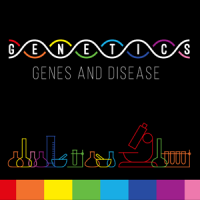
Empowering students through directed case studies Faculty Spark - View, reflect and apply
Last updated on 14/10/2019
-
You must be signed in to access this function
0
Description
How can academics design curricula that empowers students in their professional learning? In a first year foundational course, a series of authentic case studies were included to enhance students self-efficacy and professional identity.
Challenge
There are many challenges that are presented for academics in designing and delivering curricula for first year foundational courses. These may include: designing activities or delivering content that meets the range of student knowledge and abilities or; resourcing limitations. This can be further problematised for online or mixed-mode student cohorts.
In a first year Genes and Disease course, a series of case studies were incorporated which illustrated the real-life application of several key molecular concepts. These case studies empowered students, developed their analytic and diagnostic thinking ability and enhanced their collaboration skills.
Approach
Empowering first year students can be a difficult task. Students are often apprehensive of transitioning to a new context in which they have limited knowledge and experience. In a first year Genes and Disease course (1005MSC), a series of directed case studies were incorporated to develop student efficacy.
In each tutorial, students are required to participate in case-based problem-solving. These case-studies illustrate the application of the content that is taught in the week’s lecture in real-life clinical scenarios. Students are then asked a series of directed questions which encourage them to apply their knowledge to the cases and develop their analytic and diagnostic skills. Students are provided with the details of case, usually adapted from published case scenarios in the medical literature, links to further resources such as the full text of the publication, and directed questions for them to answer. An example is provided in the Support Resource below. The aim of these case study modules is to “enhance their understanding of the course material, and provide a challenging opportunity to develop the practical and intellectual skills required of a scientist and/or healthcare worker” (1005MC Course Profile, p. 1).
Outcomes
Case studies provide a powerful learning opportunity for students to engage with ‘real world’ and relevant challenges facing patients. They thus provide a mirror for the world, and provide an opportunity for students to develop their professional identity. An illustrative comment made by a student included: “Case studies, and examples were really interesting and comprehensive. It allowed me to understand the content, and at the same time relate it back to the real-world.”
It also provides an opportunity for students to develop their communication, collaboration, analytical and evaluative skills; all of which are critical to navigate the workforce.
Implement
If you are thinking about implementing this approach, consider the following:
- Ease students into the process by providing ‘practice’ case study modules. This will assist in ensuring expectations are clear.
- Provide guided and directed questions for each of the case studies, and provide links to further information. This will assist students to unpack what may seem difficult and complex real-life scenarios.
Griffith Graduate Attributes
This assessment item aligns with the following Griffith Graduate Attributes:
- Knowledgeable and skilled with critical judgement;
- Effective communicators and collaborators;
- Innovative, creative and entrepreneurial.
This assessment item required students to work through complex case studies, analyse the information provided, and answer the guided questions. A central goal of this assessment item is to develop students’ self-efficacy, professional identity and confidence in solving discipline-related problems.
Support Resources
-
Colson, N. 1005MSC, Example Module Resources.
This is an example of the resources provided for the first two modules. This includes case facts and guided questions for students to reflect upon and answer.
-
Colson, N., & Naug, H. A multi-level approach to student empowerment: Examples from Bio-Medical Science
Presentation at 2016 Celebrating Teaching Week, Griffith University, Australia.
Contributed by
-
Griffith Health
School of Medical Science
Dr Natalie Colson
(07) 555 29075
n.colson@griffith.edu.au
Griffith Experts profile -
Learning Futures
Licence
© 2024 Griffith University.
The Griffith material on this web page is licensed under a Creative Commons Attribution NonCommercial International License (CC BY-NC 4.0). This licence does not extend to any underlying software, nor any non-Griffith images used under permission or commercial licence (as indicated). Materials linked to from this web page are subject to separate copyright conditions.
Preferred Citation
(2019). Empowering students through directed case studies. Retrieved from https://app.secure.griffith.edu.au/exlnt/entry/5925/view

